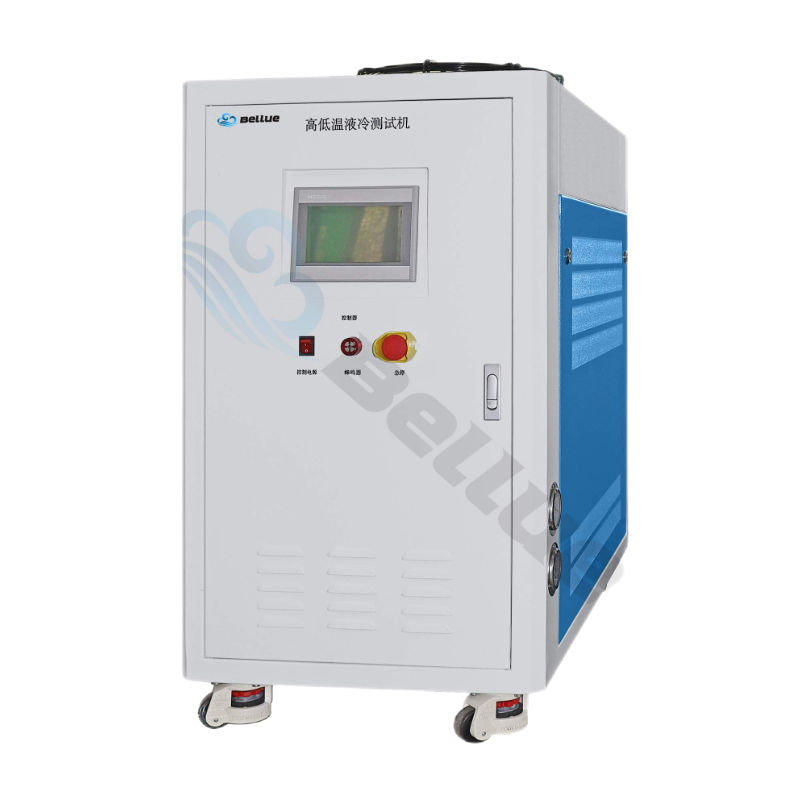Causes and solutions of frequent high pressure alarm in air-cooled high and low temperature coolant testing machine
In industrial production and scientific research experiments, air-cooled high and low temperature coolant testing machine is a commonly used equipment for simulating and testing the performance of products in different temperature environments. However, such equipment may encounter high-voltage alarm problems during use, affecting the normal work flow. This paper will discuss the causes of frequent high pressure alarm in air-cooled high and low temperature coolant tester, and put forward the corresponding solutions.
First, the reason for high voltage alarm
Cooling system blockage: pipes, radiators and other components in the cooling system may produce scale, rust and other blockages due to long-term use or water quality problems, resulting in poor coolant circulation and increased pressure.
Insufficient coolant: During the operation of the equipment, the coolant may be reduced due to leakage, evaporation and other reasons, resulting in a rise in system pressure.
Fan fault: The heat dissipation of an air-cooled device depends on the fan. If the fan is faulty, the heat dissipation effect will be reduced and the system pressure will be increased.
Temperature control system failure: The temperature control system is responsible for monitoring and regulating the temperature of the coolant. If the temperature control system fails, the temperature of the coolant may be too high, resulting in high pressure alarm.

Second, the solution
Clean the cooling system: clean the cooling system regularly to remove the blockage in the pipes, radiators and other components to ensure the smooth circulation of the coolant.
Check and supplement the coolant: regularly check the amount of coolant, find insufficient in time to supplement, while paying attention to check whether there is leakage in the cooling system, if there is leakage should be repaired in time.
Maintenance or replacement of a fan: If a fan is faulty, repair or replace it in time to ensure proper heat dissipation.
Maintenance of the temperature control system: When the temperature control system fails, professionals should be asked to perform maintenance to ensure that the temperature control system can accurately monitor and adjust the temperature of the coolant.
In short, the reasons for the frequent high pressure alarm of the air-cooled high and low temperature coolant testing machine are various, and corresponding solutions need to be taken for specific reasons. Only by doing a good job of daily maintenance and maintenance of the equipment can we ensure the normal operation of the equipment and improve the efficiency of production and experiments.
Energy storage liquid cooling temperature control technology application advantages
How to derive the test results of high and low temperature coolant tester
High and low temperature coolant test electrical source circuit connection method
The problem of water source during the use of high and low temperature coolant testing machine
Coolant filling and discharging method of battery module high and low temperature liquid cooling test machine
High and low temperature liquid cooling test machine solutions
